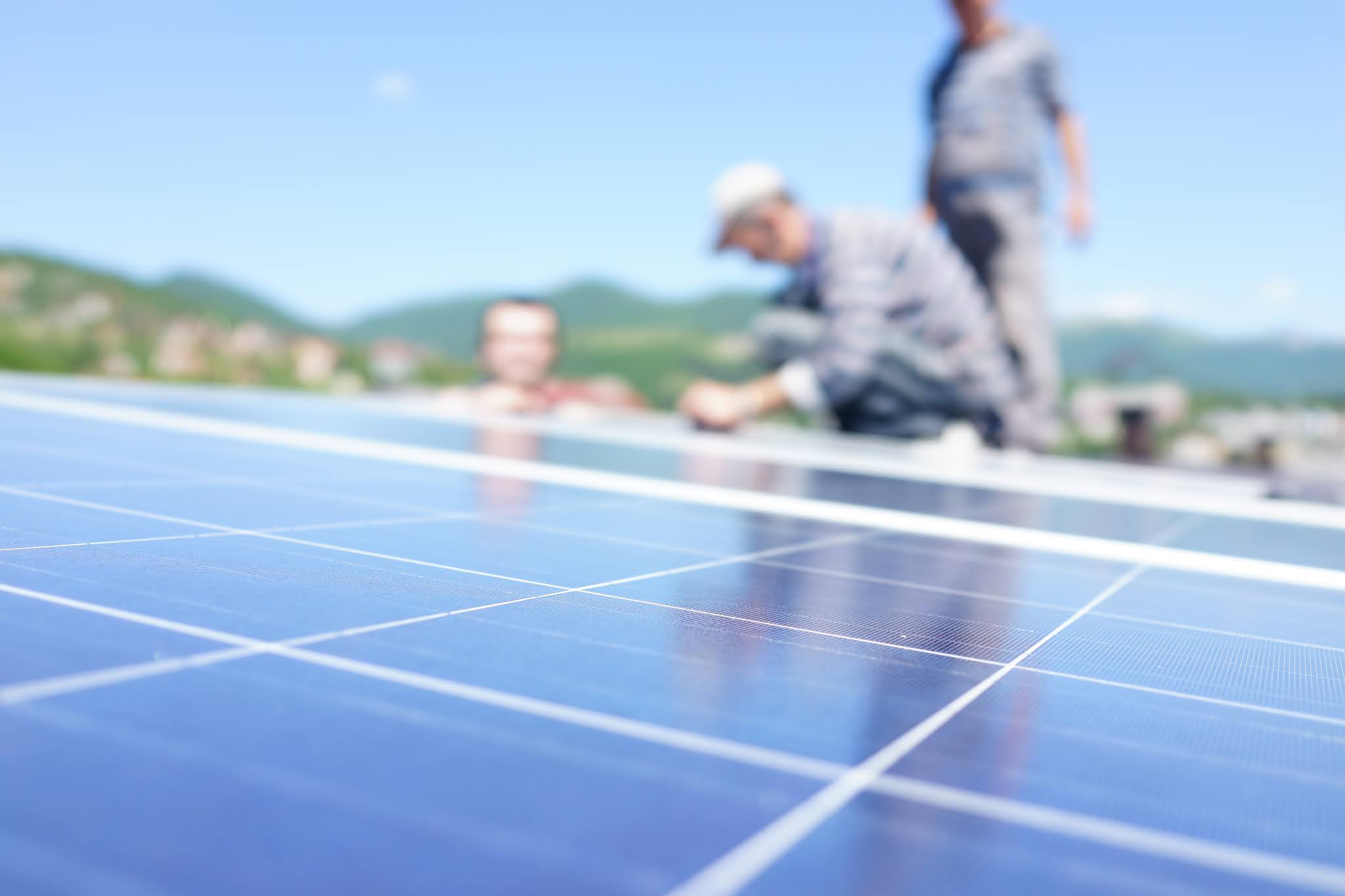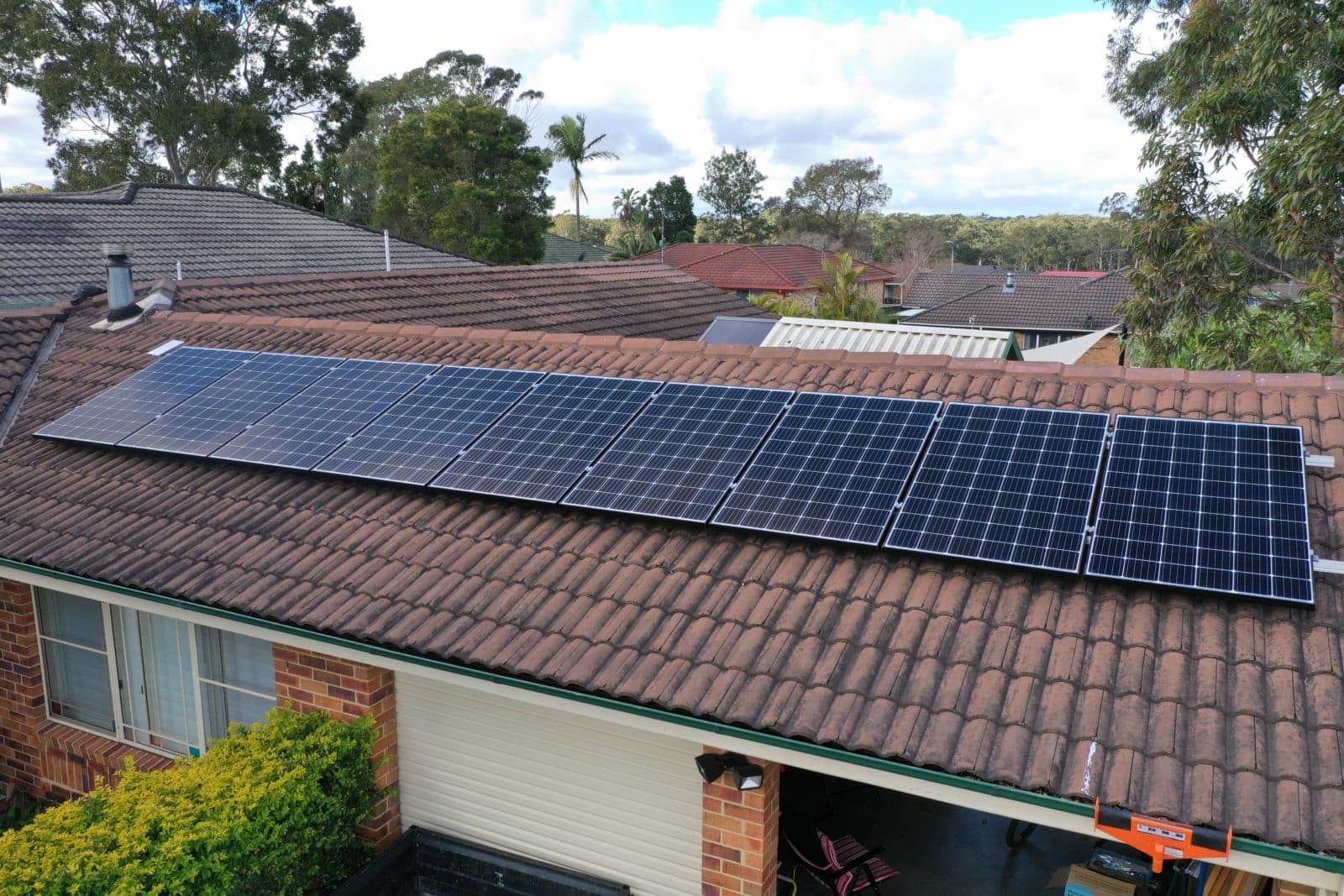Have you been wondering about installing solar panels for your home? If so, you are not alone. With the rise in energy prices and the need to protect our planet, more people are looking at this option. However, there is a lot of misinformation out there that can make it difficult for homeowners to know if they should invest in solar panels or not.
This blog
post will help clear up some of the uncertainty surrounding solar panel
installation and show why investing in these systems is worth it!
Advantages of Solar Panels at home
First, we
need to know the advantages of solar panels. Solar power is one of the best
energy sources for our homes because it has no noise, no air pollution and
doesn't require us to be near a factory or other industrial area. It also cuts
down on transportation costs and makes sense in remote areas without access to
electricity from traditional sources such as coal plants, gas stations or
nuclear facilities.
Solar panels
are now affordable with savings in their electric bill offsetting the initial
cost of installation over time (as much as 25 years). A home solar panel system
can generate 20-40% of your household's electrical needs which will save you
money on what you would have had to pay for using non-renewable fuel like oil,
natural gas or coal that runs through pipelines delivered by rail or truck.
Solar panels
are a wise investment and can be an important part of your long-term financial
plan. They will provide you with more peace of mind about the future, give your
family less exposure to toxins in our environment and reduce greenhouse gases
that contribute to global warming while lowering electric bills over time.
In this ever
changing world it’s reassuring to know we have options for clean energy sources
now available at home on rooftops.
Now that we
know that advantages, we should also need to know the disadvantages of having
solar panels at our homes.
Disadvantages of Solar panels at home
Solar panels
have tons of advantages but it also has disadvantages.
One disadvantage is that it can be costly. With solar panels you need to pay for the installation and if your lease is over than you have to buy all of them off which means they will cost a lot more money, not just in initial but also in maintenance costs.
Another
disadvantage would be power outages; even though there are new technologies
like battery storage systems or micro grids, these components still require
some kind of backup power from a local grid system which may not always work
when needed (during emergency situations).
This has led
many people with solar panels at home being deprived of their electricity
during blackouts because the government won't allow other forms of energy
production to feed into city grid networks. Some people end up using gasoline
generators, which is not the best option since they are noisy and polluting, to
power their homes.
Now that we
have cleared our thoughts about solar panels, if it’s worth to invest into our
homes, but what else do we need to know? We might be thinking to have a go and
install solar panels into our homes, but we might be also asking these
questions:
- What
are the types of solar panels?
- What
are best solar panels for our homes?
- What's
it like living with solar panels?
To dig and
get more ideas about solar panels, we need to know each type and what is best
for our homes.
1. What are the types of solar panels?
There are three main types of solar panels:
- Monocrystalline
silicon cells - these are the most efficient solar panels but its costly.
- Polycrystalline
Silicon cells - these provide a little efficiency than monocrystalline cells
and also tend to be a little cheaper.
- Thin
film solar cell (CdTe) - this is an emerging technology with excellent
potential for future use. It’s not yet commercially viable because it requires
expensive manufacturing techniques. This is also a portable and flexible type
of solar panel with lower efficiency and performance.
There are also different sizes of solar panels:
Solar panels
can be installed on the roof or ground in a vast variety of shapes, some more
complex than others.
The most
common shape is called an "array," which consists of rows and columns
of modules that face southward to capture as much sunlight as possible
throughout the day. Some arrays have poles for mounting them onto roofs while
other types fold up into boxes so they're easier to transport before
installation.
There are
also small solar panel systems that work well on boats and RVs; these include
marine grade kits designed specifically for use at sea level or elevated
pressure conditions such as found near mountains. These smaller size panels do
not require heavy lifting equipment like traditional large scale solar power
plants.
Each solar
panel has a limited number of connections, which means that the length and
width must be carefully planned out in order to keep as many panels connected
together as possible while maintaining optimal power output. A basic rule of
thumb is to make sure each module can produce at least 180 watts under peak
conditions; this ensures that the system will provide enough juice even on
cloudy days or when there are shadows present from nearby trees or buildings.
The cost for
solar installation varies widely depending on geographic location, roof type
(flat vs angled), desired level of performance, available incentives/rebates,
contractor rates, etc., but it's usually around $20 per watt installed after
tax credits and rebates - so a typical home would wind up costing about
$20,000.
If you're
looking to go solar, We are here for you! We offer a full range of
residential and commercial solar power solutions available. At Aztech Solar we
want to help make your home more environmentally friendly while also reducing
your monthly energy bills; if that sounds like something up your alley then
give us a look next time you need quality solar panel products or services in the Newcastle area.
We provide
top notch customer service as well as competitive pricing on all of our
installations and maintenance work.
2. What are the best solar panels for our homes?
After
knowing the types of solar panels, cost and efficiencies, now we need to know
which one is best to install into our homes.
The best
solar panel is the one that will provide enough electricity for your home.
The solar
panels efficiency is measured by the percentage of sunlight converted to
electric energy, called the photovoltaic conversion ratio or PVR. This measurement
ranges from about 12% in a laboratory setting to 30-50% on an overcast day with
no sun shining directly onto a panel.
A good rule
of thumb is if you have high usage rates at night then it might be best to go
with 50%. Those who are looking into solar power because they have high
electricity rates during the day might be best with a lower PVR like 22%.
There are
those who would argue that solar panels efficiency is not as important. They
say, "Solar power systems only work when the sun shines." This may be
true for some homeowners and their needs but it's wrong to assume this about
all of them.
This means
if you want to generate your own energy from renewable sources then higher
efficiencies will allow you to do so more often while saving on costs in the
long-term. The photovoltaic conversion ratio also impacts how much space a
solar panel requires since every potential watt matters in determining where an
installation should take place. In other words, low PVRs require more surface
area for a comparable output than high-efficiency panels.
3. What is it like living with solar panels?
An important
question we might need to know is "What is it like living with solar
panels?" If you have a sunny climate, as an example, the panels would be
more beneficial than if your climate had less sunlight. This means that in some
areas they are worth an investment while others may not find this as helpful
and might want to invest elsewhere.
In terms of
cost savings across the lifespan of a system, there's no denying that these
systems can save homeowners money by offsetting their electric bill each month
or saving them from rising electricity rates over time - but when considering
whether or not to install solar paneling on your home, we highly advise looking
at other factors such as how much sun shines in your area and what type of
space you need covered.
Conclusion
To wrap
things up and to help you decide if installing solar panels is worth it for
your house, here is what we have learned:
•
The
solar panels are not cheap, but the investment could pay off in the long run if
you put a good amount of research and time into it.
•
Solar
power has become cheaper than ever before which means there's never been a
better time to invest.
•
Politicians
and other stakeholders need to continue investing in solar panel technology or
they will be rendered less competitive on an international level with China,
India, Vietnam etc. who are currently dominating this industry.
•
Solar
panels are environmentally friendly and sustainable, creating less pollution
than coal plants do.
For those
that want more information about their specific situation, feel free to contact
Aztech Solar for some outside help!




Comments
Post a Comment